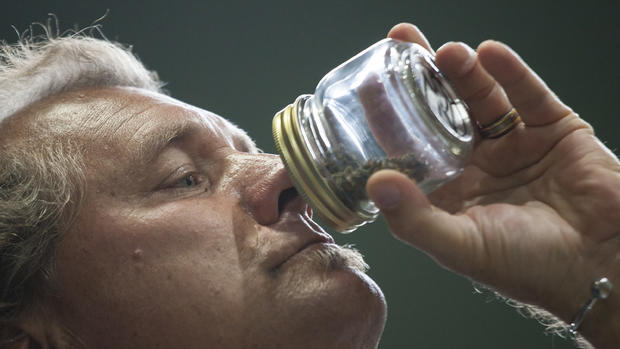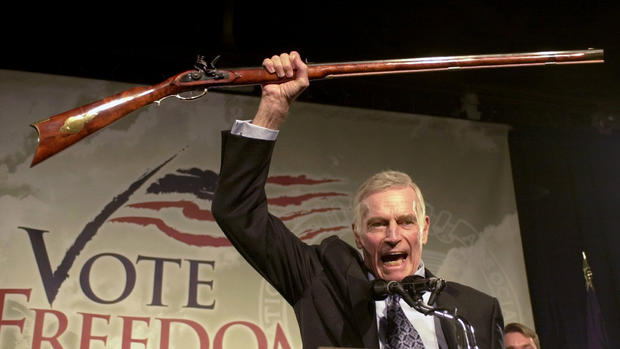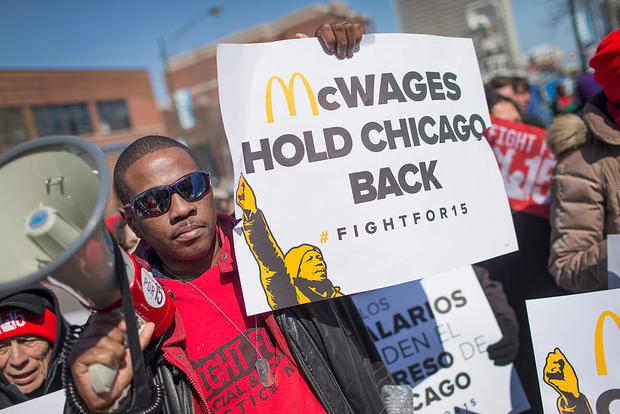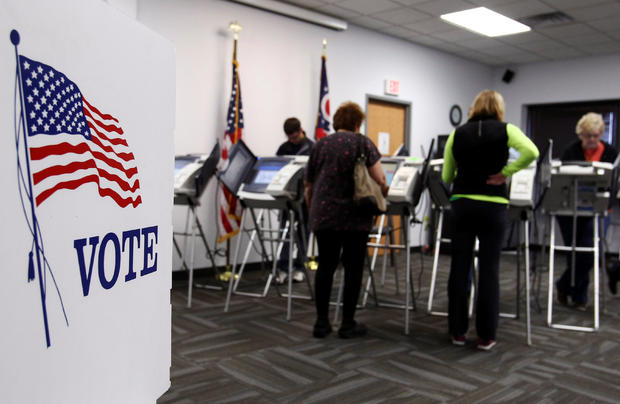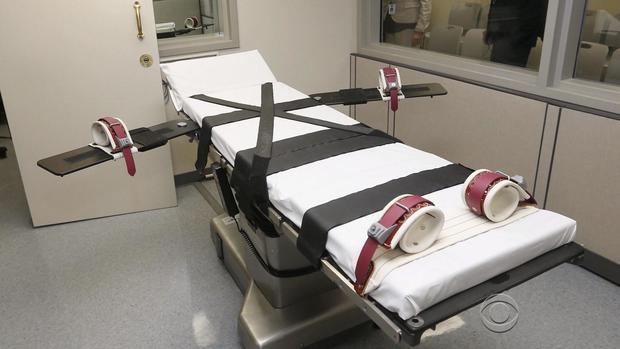Weed, guns, porn: Introducing November's ballot initiatives
Voters won't only cast ballots for the next president, their senator or congressman this November, but many will also have the chance to enact laws of their own.
About half of the country -- 26 states plus Washington, D.C. -- have ballot initiatives or referendum processes in which average citizens can try to change existing state law or create new laws.
While many states don't have their slate of initiatives finalized yet, proposals are now circulating for signatures and they provide a snapshot of what could become law if they qualify for ballots and voters approve them.
Proposals include legalizing recreational marijuana, changing state law relating to firearms, raising states' minimum wages, reforming campaign finance laws and dealing with the death penalty.
Some states allow citizens' proposals to go directly on the ballot if they collect a certain number of signatures, with the threshold usually being in the hundreds of thousands. Other states operate under a system in which the legislature would vote on a proposed initiative and if it's rejected, it appears on the ballot for voters to decide.
Here's a look at some of the major issues that could be decided by voters on Election Day:
Recreational marijuana
Alaska, Colorado, Oregon, Washington state and Washington, D.C. are the only places where marijuana has been legalized for recreational use, and all of their laws were approved through state ballot initiatives in the last four years. In November, a number of states could join that group.
So far, California, Maine and Nevada will definitely have measures on their ballots that will ask voters whether they'd like to legalize recreational marijuana. If voters approve them, a few of those measures would also demand that some of the tax revenue generated from sales would fund education programs.
States that could potentially have similar initiatives on their ballots are Arizona, Arkansas, Massachusetts, Montana and North Dakota.
Gun control
With gun control action at the federal level at a standstill, states are taking action on their own. Maine and Nevada will both have initiatives on their November ballots that would require background checks. Maine's proposal would require background checks for all gun sales and transfers. Nevada's would require an unlicensed person who wants to sell or transfer a firearm to another unlicensed person to conduct the transfer through a licensed gun dealer who would run a background check.
In California, an initiative that would impose tough restrictions on ammunition purchases has qualified for the state ballot. It would require background checks for ammunition purchases and ban people from possessing large capacity ammunition magazines that hold more than 10 rounds like those used in the 2012 massacres at Sandy Hook Elementary school and the movie theater in Aurora, Colorado.
Minimum wage
As the debate over the minimum wage unfolds in the 2016 presidential race, some states may not wait for the federal government, which has not raised the minimum wage since 2009 -- it's currently $7.25 per hour. Maine is the only state so far that will definitely have an initiative on its November ballot that will ask voters whether the state should raise the minimum wage. Specifically, it would gradually increase it from $7.50 to $9 next year and increase it by a dollar each year until it reaches $12 in 2020.
South Dakota, on the other hand, will have an initiative on its ballot that asks voters whether they want to decrease the state's minimum wage for non-tipped workers under age 18 from $8.55 to $7.50.
Arizona, Colorado, Ohio and Washington all have potential initiatives that would raise their minimum wages by various amounts with several ranging from $10 to $13.50 sometime over the next four years.
Elections and campaigns
Missouri will have a constitutional amendment on its ballot that asks voters whether they want the state government to require voter IDs during public elections.
A few states have potential proposals that would reform campaign finance laws. Arizona, for example, would require the disclosure within 24 hours of "original sources" and "intermediaries" of all major political donations that exceed $10,000 to influence elections.
Death Penalty
In California, voters will have the opportunity to vote on a measure that would repeal the state's death penalty for people found guilty of murder and replace it with life in prison without parole. Arizona also might have an initiative that would repeal its death penalty and replace the sentencing option with life in prison.
An initiative that made the ballot in Oklahoma would assert that all methods of execution should be constitutionally allowed unless the Constitution bans it.
A veto referendum in Nebraska, meanwhile, will ask voters whether they want to repeal or maintain a law that eliminated the death penalty in the state. The state legislature passed a bill banning the death penalty. Gov. Pete Ricketts, who advocates the death penalty, vetoed the bill, but his veto was overturned by a single vote, so the death penalty ban became law.
Miscellaneous
A proposal that will almost certainly be on the ballot in California would require actors in pornographic films to use condoms during sexual intercourse. It would also require producers of adult films to pay for actors' testing, vaccinations and medical exams to test for HIV/AIDS and other sexually transmitted infections.
California voters will also decide whether they want to uphold the state's ban on plastic bags and whether they want to redirect fees on paper and reusable bags to environmental projects. California passed the first-in-the-nation plastic bag ban in 2014, but it never took effect because it was bound to appear as a ballot referendum this year.
Voters in Colorado could make history: their state ballot will offer an amendment to the state constitution that would establish a single-payer health insurance system known as ColoradoCare. It's designed to provide healthcare coverage to the state's residents through a $25 billion increase in state taxes.
Washington state voters might have an initiative on their ballots that would repeal Human Rights Commission rules that protect transgender people who use locker rooms and bathrooms that correspond with their gender identity. The proposal would require public schools and businesses to restrict use of their facilities to a person's biological sex.
CBS News's Julia Boccagno contributed to this report.
